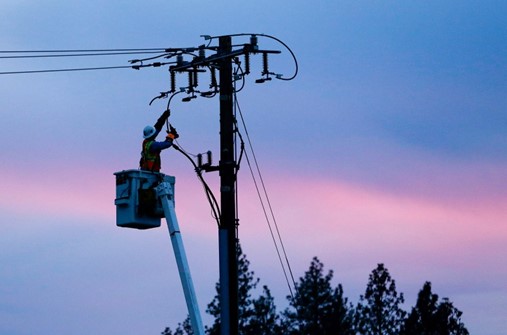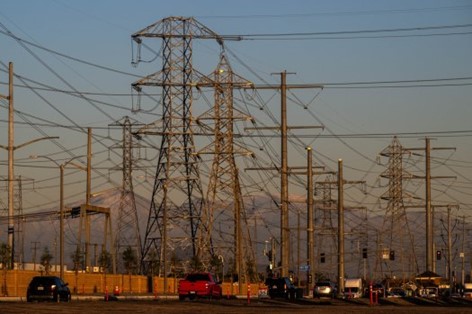State Energy -- Consequence of AB-205 (2022)

Legislators Fight Proposed California Utility Fees

Electric Bill On Income? Lawmakers Agree, Forget it!
In 2022, Gov. Gavin Newsom signed a comprehensive energy bill, AB-205. The bill included a provision requiring the California Public Utilities Commission to hammer out new fixed charges, ideally in a way where lower-income households pay less than higher-income ones.
California’s big utilities promised that a proposed change in customer energy bills would help low-income families. Democratic lawmakers are now joining Republicans in saying that the move is unfair to their constituents and will set back energy conservation.

The debate centers on “fixed charges” — set fees included in your monthly electric bills that are added on top of what you’re charged based on usage.
The state’s three largest electric utility companies, Southern California Edison Company, Pacific Gas and Electric Company and San Diego Gas & Electric Company, all proposed the plan, saying that low-income customers could save approximately $300 a year under this new law.
Alternatively, California households earning more than $180,000 a year would end up paying an average of $500 more a year on their electricity bills, according to the proposal.
These fees go toward operating costs for the state’s electric grid.
Here’s a breakdown of the proposed rate restructuring for SoCal Edison customers, based on income:
- Above $180,000: $85/month
- $69,000 – $180,000: $51/month
- $28,000 – $69,000: $20/month
- Less than $28,000: $15/month
The plan will break down monthly bills into a fixed rate, plus a reduced usage charge based on consumption, according to officials.
Some lawmakers, mostly Republicans at the time, argued that the proposal would not only drive up costs, but discourage people from saving energy too.

Jacqui Irwin, Democrat
Some Democrats are now sounding the alarm. Assembly member Jacqui Irwin of Thousand Oaks, joined by a handful of lawmakers including Sen. Scott Wiener of San Francisco, announced legislation to roll back the fixed charge mandate, calling it “impractical.”
Irwin: “Electricity rates have skyrocketed throughout the state…. Our constituents have had enough and so have we. It’s time to put some reasoning back into how we charge for electricity in California.” Because “it is essential to lower our rates in order to meet our climate goals,” Irwin’s measure would also allow the commission to explore other options to pay for fixed costs and lower electricity rates.
Wiener said the proposed charges were “outrageous” and “offensive,” potentially adding as much as $830 a year for millions of middle-class people.
Meanwhile, Newsom’s office released a statement saying that the commission, whose members are appointed by the governor, “is working diligently with dozens of stakeholders” on a proposal, reported KCRA. And what are Republican lawmakers saying? Mostly, “I told you so.”

Josh Hoover, Republican
Folsom Assembly member Josh Hoover said Democrats are “walking back a bad policy they voted for just over a year ago,” and Senate GOP leader Brian Jones of San Diego said Democrats were wrong for supporting the law at all. Senate Republicans attempted to force a floor vote to amend the law but were unsuccessful.

Democrats Irwin, Wiener et al. introduced Assembly Bill 1999 — “Electricity: fixed charges” — repealing the income-graduated fixed charge requirement and the July 1 deadline. It would instead allow the CPUC to authorize fixed charges of $5 per month for low-income customers and up to $10 per month for others. Increases could not outpace inflation.
Sen. Shannon Grove, R-Bakersfield, proposed amendments to an election-related bill that would have “deleted” the income-based fee, which she said, “unfairly targets hard-working families in all of our districts.”
“We are creating energy poverty in California, where bills are not sustainable for the average Californian,” Grove said. Though many lawmakers clearly agree, her proposal didn’t fly.
The commission has until July 1 to decide on the proposed new fixed charges.
Credit to CalMatters, LA Times, and Orange County Register.



